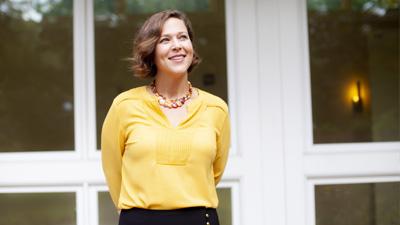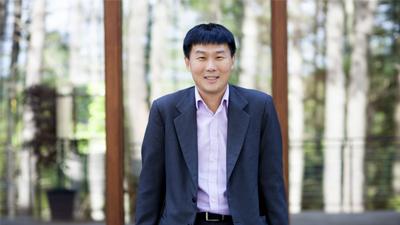Better Decisions Through Science // Global Trade
With uncertainty at an all-time high, the operations and management science faculty, along with Tuck's international trade economists, are helping a range of industries refine their practice and prepare for what might come next. In this multi-part feature, we highlight current research by Tuck faculty.

Industry // Global Trade
The Challenge
How to Think About Operations with Global Awareness
When firms prepare to source and make their products, they like to know as much as possible about the costs and potential problems waiting ahead. That kind of predictability gives them confidence to hire the right number of workers, put contingency plans in place, set prices, and set expectations with others in the value chain. During the past five years, two global forces have made predictability a precious thing: a trade war between the U.S. and China, which unexpectedly instituted tariffs on a host of materials and products; and the COVID pandemic, which has shocked supply and demand in multiple ways. “It’s just an incredibly uncertain time for firms to be figuring out how to get their products to market,” says Emily Blanchard, an associate professor of business administration.

Emily Blanchard
Associate Professor of Business Administration; Current Chief Economist, U.S. Department of State
As international trade economists, Blanchard and her colleagues in the economics research group at Tuck tend to think about the current supply chain woes as a policy issue at the level of firms and nations. For example, when firms choose to follow a just-in-time production model, they create supply chain vulnerabilities that in times of crisis must be addressed by nations seeking to protect the health and welfare of their citizens. We are seeing this play out now, as governments are intervening in industries and subsidizing the build-up of production capacity for critical inputs, such as semiconductors and batteries.
It’s just an incredibly uncertain time for firms to be figuring out how to get their products to market.
While these challenges exist in the category of operations, they also cross corporate and government boundaries. That’s why Tuck’s economists teach several core and elective courses that, according to Blanchard, “help students understand markets within and across countries, how those markets respond to unexpected shocks, how they evolve over time, and how government policy choices matter in the short and long-run.”
The slate of elective classes offered at Tuck on globalization-related topics has recently expanded and now covers topics such as:
- International trade and firm networks (Countries and Companies in the International Economy, taught by Andrew Bernard, the Kadas T’90 Distinguished Professor)
- The forces that drive long-run economic growth across different countries (Growth Economics, taught by Davin Chor, an associate professor and Globalization Chair)
- The effects of global fragmentation of production on economic growth and welfare (Research-to-Practice Seminar: The Global Structure and Conduct of Firms, taught by Teresa Fort, an associate professor of business administration)
- The ability to articulate and defend compelling visions for change in global business issues (Leadership in the Global Economy, taught by Dean Matthew Slaughter)

Davin Chor
Associate Professor; Globalization Chair
Going forward, these professors will be studying the changes wrought by trade conflicts and the pandemic and bringing that knowledge into their classrooms. Indeed, they already are. For example, Blanchard and Chor have written a paper about the impact of the Trump tariffs on the 2018 election in the U.S., while Blanchard has been studying how nations adjust their trade policy in response to global shocks. In the longstanding first-year core class on Global Economics for Managers, the final day of the course now covers the macroeconomic and global trade implications of the COVID-19 pandemic, as a case study that brings to life many of the core concepts learned during the term. And in his elective, Bernard explains how Trump’s tariffs on washing machines also raised prices on dryers.
“These topics and many others are essential to a nuanced understanding of how firms and governments operate, and Tuck teaches them all,” Blanchard says.
Next
Health Care Operations
This article originally appeared in print in the winter 2022 issue of Tuck Today magazine.